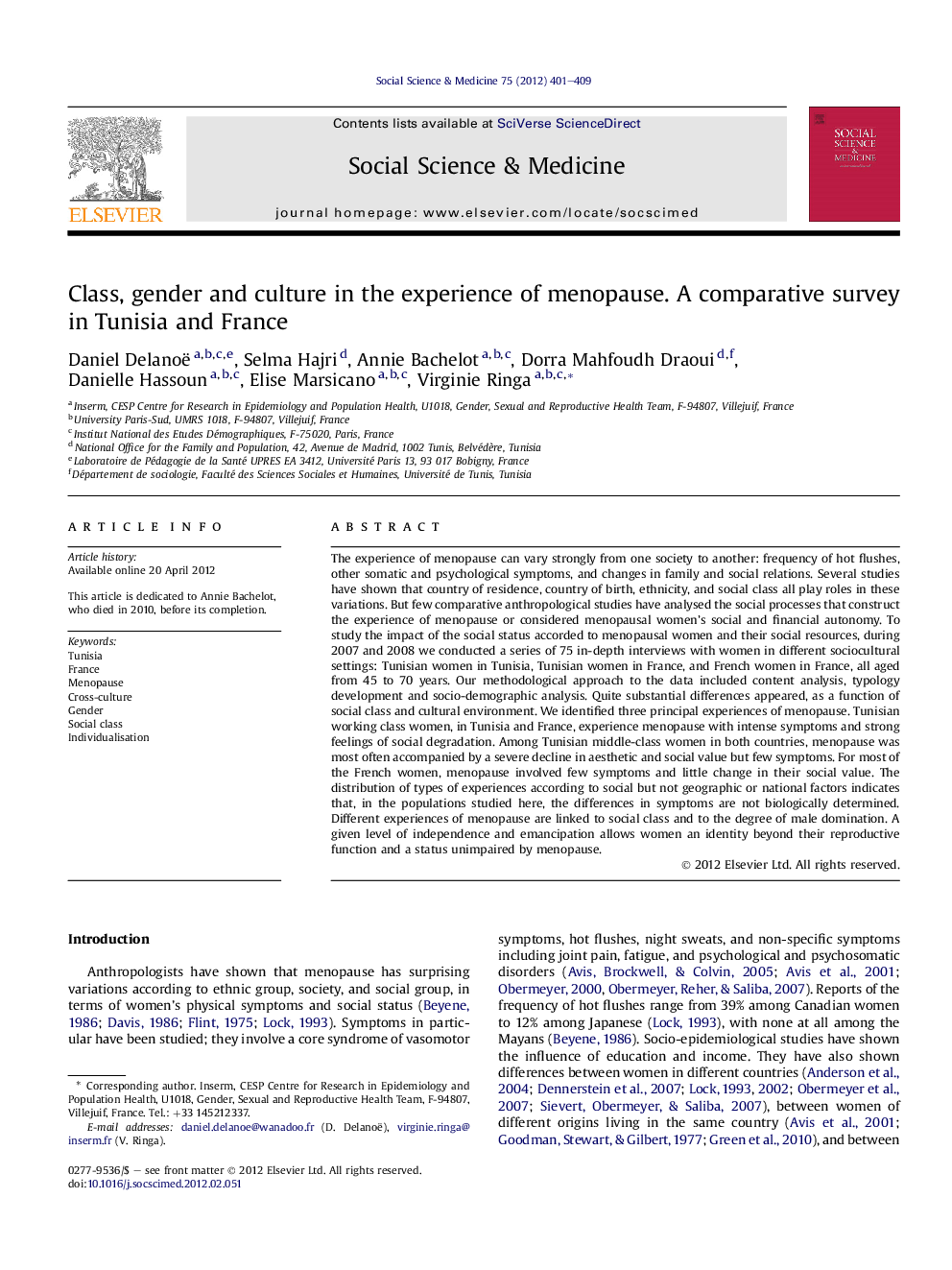| کد مقاله | کد نشریه | سال انتشار | مقاله انگلیسی | نسخه تمام متن |
|---|---|---|---|---|
| 952554 | 927521 | 2012 | 9 صفحه PDF | دانلود رایگان |

The experience of menopause can vary strongly from one society to another: frequency of hot flushes, other somatic and psychological symptoms, and changes in family and social relations. Several studies have shown that country of residence, country of birth, ethnicity, and social class all play roles in these variations. But few comparative anthropological studies have analysed the social processes that construct the experience of menopause or considered menopausal women's social and financial autonomy. To study the impact of the social status accorded to menopausal women and their social resources, during 2007 and 2008 we conducted a series of 75 in-depth interviews with women in different sociocultural settings: Tunisian women in Tunisia, Tunisian women in France, and French women in France, all aged from 45 to 70 years. Our methodological approach to the data included content analysis, typology development and socio-demographic analysis. Quite substantial differences appeared, as a function of social class and cultural environment. We identified three principal experiences of menopause. Tunisian working class women, in Tunisia and France, experience menopause with intense symptoms and strong feelings of social degradation. Among Tunisian middle-class women in both countries, menopause was most often accompanied by a severe decline in aesthetic and social value but few symptoms. For most of the French women, menopause involved few symptoms and little change in their social value. The distribution of types of experiences according to social but not geographic or national factors indicates that, in the populations studied here, the differences in symptoms are not biologically determined. Different experiences of menopause are linked to social class and to the degree of male domination. A given level of independence and emancipation allows women an identity beyond their reproductive function and a status unimpaired by menopause.
► First cross-cultural study on menopause in Tunisia to compare Tunisian women in Tunisia, Tunisian women in France, and French women in France.
► Cross-cultural study examining the impact of male domination on the experience of menopause.
► Social context acts on symptoms by incorporating social relationships rather than by modifying the biological or genetic environment.
► Social class plays a major role in the experience of menopause, more negative among the working classes than among middle-class women.
► Menopause affects women least in cultures where they have freed themselves from exclusive reproductive and domestic functions.
Journal: Social Science & Medicine - Volume 75, Issue 2, July 2012, Pages 401–409